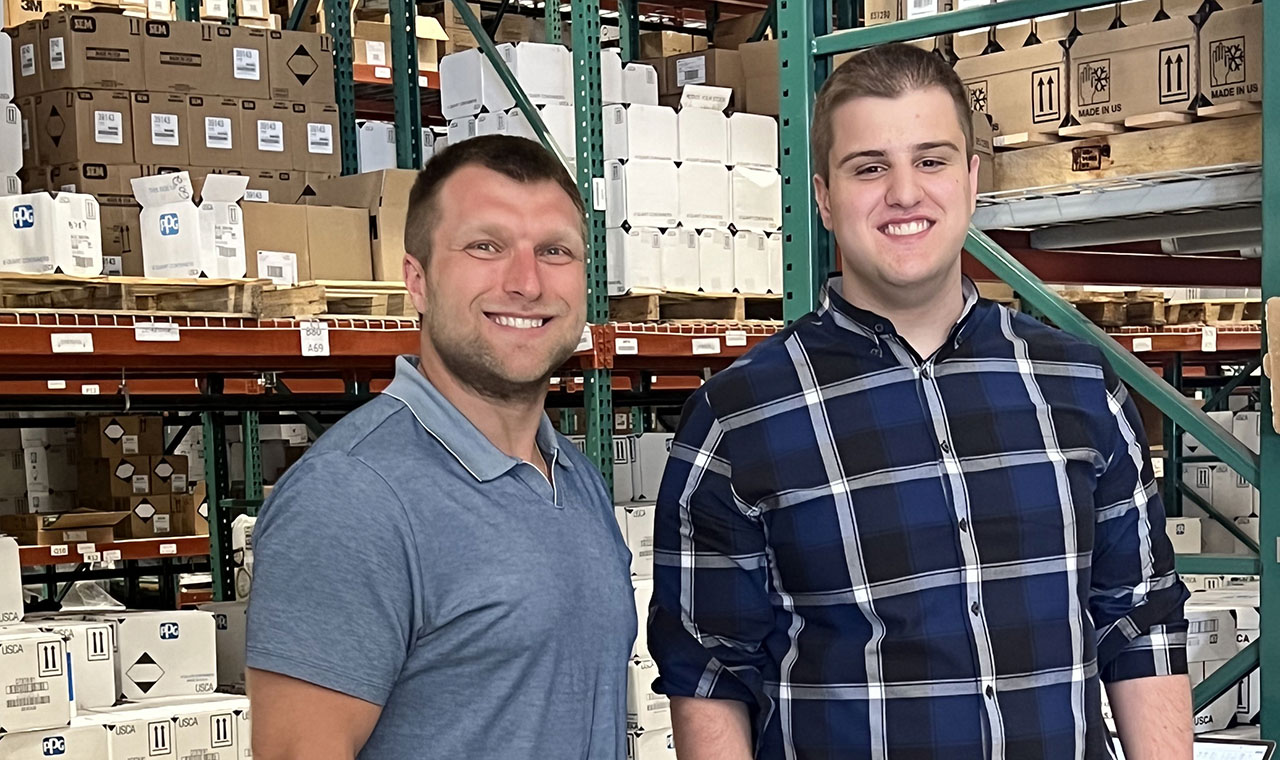Faculty Profile: A Conversation with David Mahalak, Ph.D.

As Faculty Specialist in the Operations & Analytics Department at The University of Scranton, David Mahalak, Ph.D., aims to provide immersive learning opportunities for students.
“My favorite aspect of teaching is the connection with students,” said Dr. Mahalak. “I do my best to create an environment of mentorship where people can share wisdom to help others see opportunities.”
At the Kania School of Management he focuses on connecting students with educational and professional opportunities throughout Northeastern Pennsylvania. In addition, he has worked personally with students on supply chain management and process improvement internships.
Dr. Mahalak earned a Doctorate of Engineering in Engineering Management from The George Washington University, where his doctoral research focused on using decision support systems to conduct an analysis of alternatives for the Department of Defense acquisition programs.
Here Dr. Mahalak discusses an experience that helped define who he is today, a linear programming class that changed the course of his career and the best advice he ever received from a professor.
What has been the biggest accomplishment of your career?
"My greatest accomplishment as a professional was working as a government contractor on the Joint Light Tactical Vehicles and Automated Convoy Operations programs. It was a privilege to work alongside active and retired military personnel. The work that we did extended beyond concepts of revenue and return on investments, and into more meaningful metrics, such as saving lives. It was an extremely rewarding experience to be part of those programs and it helped shaped me into the person I am today."
What is your favorite comment from a student course evaluation?
"A student that said they were challenged in my course, but thankful because it enabled them to do more than they thought they were capable of. As an educator, this is one of my main objectives. I want to provide a challenging, but supportive environment so students can build their self confidence to accomplish their personal, professional and academic goals."
How would you describe the culture of your department?
"The Operations & Analytics Department is very welcoming and open-minded. We are continually discussing the latest industry trends and how we can integrate these concepts into our current and future curriculum. It is great to be part of a department that is adapting to the needs of our students and industry."
How do you think the university's Jesuit mission has impacted your time as a professor?
“There are many talented young people in challenging financial and social situations. I want to give them hope and direction for changing their lives, and show them they also have support within their communities to guide them.”
Best advice you’ve ever received?
"The best advice that I ever received was during my junior year of undergraduate studies. My professor recommended that I take a linear programming class, which ultimately changed the direction of my life. In this course, I found my passion for applied mathematics, specifically within the business domain. After this class, I decided to pursue my master’s degree in operations research, which lead to employment in the government, doctoral research and several professional opportunities.
Looking back, I am thankful that I broadened myself and took that class, because if I didn’t, it is possible that I could have been on a different path. I always encourage students to challenge themselves, explore new opportunities, and have faith that the decisions and work they put in now will lead to amazing experiences in the future!"
How are you an advocate for the use of technology in the teaching and learning process?
"Technology is a huge component of the statistics and data analytics classes that I teach. I also share my personal recommendations and encourage students to build skills in computer programming, especially in Python.This is a growing need in industry and will open up more employment opportunities for our students upon graduation."
Why should students consider a major in the Kania School of Management?
"KSOM is an excellent program that is nationally recognized and most importantly, invested in our student’s future. Our faculty includes highly-distinguished researchers, and many of us come from professional backgrounds that enable us to integrate real-world experiences into our courses."
MEET DR. David Mahalak
David Mahalak, Ph.D., is a Faculty Specialist in the Operations & Analytics Department. A native of Wilkes-Barre, who now resides in Dallas, Pennsylvania, he received his Doctorate of Engineering in Engineering Management from The George Washington University. Prior to that he earned a Master of Science in Operations Research from Northeastern University, and a Bachelor of Arts in Mathematics with a minor in Secondary Education from Wilkes University.
Dr. Mahalak has completed master certificate programs at Michigan State University and Villanova University.
Inspirational Thoughts?
"My favorite quote is by Aristotle, 'We are what we repeatedly do. Excellence, then, is not an act, but a habit.' I try to model myself upon this principle. Regular actions completed to the best of your abilities will enable you to accomplish your personal, professional, and academic goals."
Is there an event or tradition on campus that you look forward to every year?
"Casino Night is our semester-end Operations and Analytics club event that enables students to relax and have fun before finals, but also raises nonperishable food donations for the CSSJ!"
favorite sports team?
"Philadelphia Eagles, Fly Eagles Fly!!!"
Side pursuits:
"I enjoy playing chess, weight lifting, and volunteer coaching for my children’s’ youth sports teams."
In the news:
* Learn more about Dr. Mahalak's recent participation in a community fundraiser here.
* Read an in-depth profile about his commitment to Northeastern Pennsylvania here.






